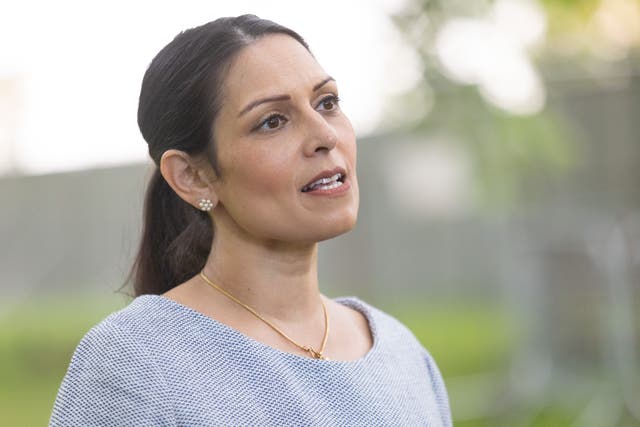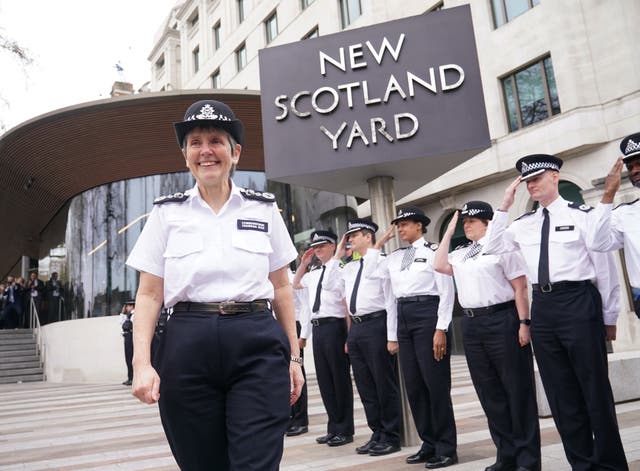London’s Metropolitan Police placed under special measures amid failures
Her Majesty’s Inspectorate of Constabulary and Fire and Rescue Services said the force is being closely scrutinised.

The UK’s largest police force has been placed under special measures after a series of failures.
Her Majesty’s Inspectorate of Constabulary and Fire and Rescue Services (HMICFRS) said the Metropolitan Police Service is being closely scrutinised having faced extensive criticism following the death of Sarah Everard, who was abducted and murdered by serving Met police officer Wayne Couzens, and the Charing Cross police station scandal.
Home Secretary Priti Patel and London mayor Sadiq Khan welcomed the move.

According to the policing watchdog’s website, a force enters the process if it is “not responding to a cause of concern, or if it is not succeeding in managing, mitigating or eradicating the cause of concern”.
It adds: “In the Engage phase, forces will develop an improvement plan to address the specific cause(s) of concern that has caused them to be placed in the advanced phase of the monitoring process. The force may receive support from external organisations such as the College of Policing or the National Police Chiefs’ Council, brokered by HMICFRS.”
The move comes at a turbulent time for the Met after former chief Dame Cressida Dick stepped down from her role as commissioner in April.

Last week, the Met confirmed a further eight voluntary referrals involving strip searches of children have been made to the Independent Office for Police Conduct after two teenage girls were strip-searched by officers while they were menstruating.
The family of Child Q, one of the teenagers, welcomed the decision.
They said in a statement: “The Metropolitan Police has shown time and again that it cannot do its job properly and its officers’ actions have had life-changing, devastating consequences for innocent people across London, including Child Q. It is no wonder that there is little to no faith left in the Metropolitan Police.
It is the second force to be placed on special measures in recent years. The watchdog placed Greater Manchester Police in the Engage process in 2020 after it failed to report 80,000 crimes.
Mina Smallman, the mother of murdered sisters Nicole Smallman and Bibaa Henry, said it was “better late than never” for the Met to be entered in the process.
She has been critical of the force after two constables were jailed for sharing images of her daughter’s bodies on WhatsApp.
Ms Smallman added that she had previously called for the Met to be put on special measures.
She added that people have been challenging the Met on its practices since the murder of Stephen Lawrence in 1993.
“It’s the kind of papering over the cracks, trying to look as though you’re perfect,” she said. “And the only people who get away with that are the people who are the perpetrators.”
A spokesman for the Met said: “We recognise the cumulative impact of events and problems that the Met is dealing with. We understand the impact this has had on communities and we share their disappointment.
“We are determined to be a police service Londoners can be proud of. We are talking to the inspectorate about next steps.”





